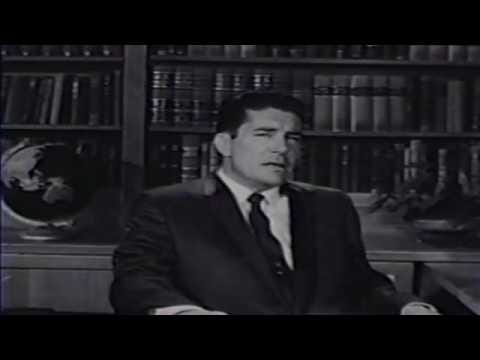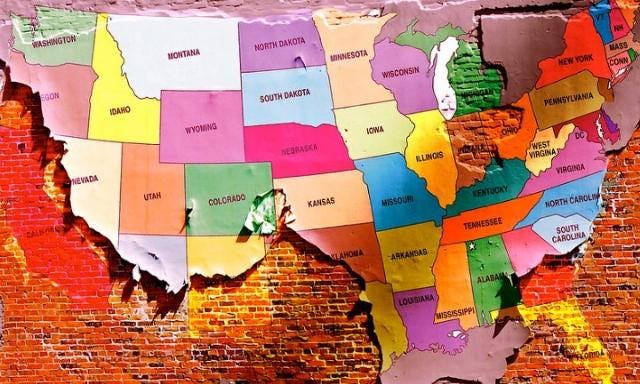How a democracy destroys your rights
There’s a reason the founding fathers didn’t want a democracy.
The authoritarians and their ever-abiding media minions of the fascist far left have always striven to lie with language to further their socialist national agenda. Their most recent project is conniving to convince everyone that we’re a “democracy” instead of a constitutional republic — for several reasons, but the most fundamental is that if they can change the foundations of our Republic, they can change anything.
The far left has always laid claim to a counterfeit “right” to change the definition of any word they choose for their momentary convenience. George Orwell hinted at this in his dystopian epic 1984, with his essay on “Newspeak.” And they even have the cojones to bring these redefinitions up in their gaslighting efforts. Just mention the collectivist agenda of centralized control of “that Swashbuckling Little Politician” and his merry band of manure-colored Iggys, and they’ll instantly lay claim to the right to define the word “socialism” in any way they see fit.
Lying with language has always come naturally to the far left. Leftists just come up with a good language lie and keep on repeating it until it becomes the “truth,” beginning with their ever-present self-labeling lies of liberal and of course “progressive.” The people who want to rip up the Bill of Rights and eviscerate individual liberty still love to imply support for the concept with that false label — and sadly, far too many on the pro-freedom right still blindly follow along with them in this deception. The “progressive” label is meaningless but falsely implies something else.
But they’ve even figured out a way to exploit their party name, and now they are gaslighting on all jets, trying to convince the country to adopt the opposite of our founding. Even worse, their little gaslighting campaign works on subliminal and deeper levels.
Consider the implication of their childish wordplay in making the evidence-free and never-defined accusation that the pro-freedom right is “anti-democratic,” considering their party name. This means an almost unconscious negative word association with anyone who opposes them.
However, their authoritarian wordplay goes even deeper than that. Sixty-odd years ago, a commentator produced an excellent explanation of the issues involved as to why we’re “A Republic, Not a Democracy.”
All this has a deeper meaning: in the simplest terms, a constitutional republic means that the government is restrained by a set of rules that cannot be changed at a whim by majority rule.
“Democracy is two wolves and a lamb voting on what to have for lunch. Liberty is a well-armed lamb contesting the vote!”
—Benjamin Franklin
The commonsense human right of self-defense is a prime example of this principle at work. Whereas we have this fundamental and G-d-given human right, no matter what happens, in a democracy, the emotions of any particular moment can be exploited by the authoritarian left to incrementally destroy this and any other right.
Consider that in the past few years, the gun-grabber lobby has cynically exploited mass murder tragedies by polling the people within hours or a day of such a tragedy with vague yes-or-no questions. When you ask whether people agree that we need more gun regulations, naturally, in the high emotions of the moment, most people will say yes.
The gun-grabber lobby will then turn around and apply this vague agreement to whatever draconian proposal it has on the docket, with the claim that a large number of people support this particular suppression of individual liberty. And even though these ad hoc polls were merely a snapshot in a time of high emotion, the gun-grabbers continue to this day to use these numbers.
Now, were we a “democracy,” these kinds of shenanigans would be used to attack and decimate our fundamental freedoms, because they wouldn’t be afforded constitutional protection. A prime example of this occurred in Oregon with a ballot measure that barely passed, 50.6% to 49.4%, while emotions were running high over “gun violence.”
Even though this passed by only a narrow margin, it put massively draconian constraints on only part of the population.
That is why democracy is dangerous. This anti-liberty abomination was eventually struck down, but it can come back, and it shows that even basic human rights can be eviscerated by a “democratic” movement. What else do they have planned?
What if they could get 50.6% of the population to tax all of the income of the 49.4% so that the 50.6% could get all kinds of freebies?
What if they could get 50.6% of the population to declare that 49.4% are “domestic terrorists” and throw them in jail?
That’s what you can do in a “democracy,” and that’s why the founding fathers abhorred the concept. That should tell you all you need to know about the intentions of the “Democrats” and the national socialist media.
Originally published on the American Thinker





Exact ideals and values of a Constitutional Republic, distinct from democratic ideals and values, include:
- **Liberty**: Freedom from arbitrary or despotic control.
- **Inalienable Individual Rights**: Rights that cannot be taken away or sold.
- **Sovereignty of the People**: Recognizing the people as the ultimate source of authority in law.
- **Rejection of Monarchy, Aristocracy, and Hereditary Political Power**: Emphasizing the election of leaders by the people.
- **Virtue and Faithfulness in Civic Duties**: Encouraging moral behavior and dedication to public service.
- **Vilification of Corruption**: Opposition to dishonesty and abuse of power in government.
- **Separation of Powers**: Dividing governmental functions among different branches to prevent the concentration of power.
- **Rule of Law**: The principle that everyone, including the government, is subject to the law.
- **Federalism**: A system of dividing governing powers between a central government and constituent political units.
- **Republicanism**: The belief in the rule of the people, either directly or through elected representatives.
- **Equal Footing**: Ensuring that all states have equal rights and privileges within the union.
- **Strict Scrutiny**: A legal standard applied to determine if a law or government action violates constitutional rights.
These values and principles are foundational to the Constitution and history of the United States, reflecting the core beliefs of republicanism as articulated by the Founding Fathers and embedded in the nation's founding documents.
Ochlocracy: An Examination of Mob Rule
Ochlocracy, originating from the Greek words 'Ochlos' (meaning crowd) and 'Kratos' (power), refers to a form of governance where power is held by the masses, often leading to the domination of society by mobs. This concept highlights the potential for societal instability and the suppression of authority figures through collective action.
## Characteristics of Ochlocracy
In ochlocracy, decision-making is influenced by the whims and passions of the majority, rather than rational deliberation or established laws. This can lead to unpredictable changes in policy and governance, as decisions may be driven by immediate desires or fears of the populace, rather than long-term considerations or the common good.
### The Role of Masses
Under ochlocracy, the masses play a central role in shaping the direction of society. However, this influence is often volatile, as the opinions and emotions of the crowd can change rapidly, leading to instability and unpredictability in governance.
## Historical Contexts of Ochlocracy
Throughout history, instances of ochlocracy have occurred during times of social unrest, economic hardship, or political upheaval. These periods often see the emergence of charismatic leaders who capitalize on public discontent to seize control, leading to temporary regimes that prioritize the immediate demands of the mob over the stability and welfare of the state.
### Modern Implications
In contemporary contexts, the threat of ochlocracy persists, especially in societies experiencing rapid social change or facing significant challenges. The potential for mob rule to emerge underscores the importance of robust institutional frameworks and mechanisms for managing conflict and ensuring orderly transitions of power.
## Conclusion
Ochlocracy represents a form of governance fundamentally different from traditional models, emphasizing the power of the masses over established authority. While it offers a theoretical framework for understanding the dynamics of collective decision-making, it also serves as a cautionary tale about the risks associated with mob rule, including the potential for societal chaos and the suppression of individual rights and freedoms.